The benefits of library software for primary schools with little resources
School libraries play a crucial role in children’s reading development and access to books. Library management software like Reading Cloud gives educators the tools to keep track of where books are even if they don’t have a designated library space, and moreover, gives students the autonomy to find books they want to read.
In this blog, we’ll look at the benefits of investing in online school library software for primary school with little budget and resources, helping educators to save time so they can focus on nurturing a lifelong love of reading amongst students.

Technology is revolutionizing school libraries. Online library management software allows students to independently manage book loans while providing educators with comprehensive tracking capabilities. This blog investigates how cost-effective digital library solutions like Reading Cloud can enhance reading accessibility and engagement in primary schools with minimal resources.
Why take your library management online?
School library software offers significant advantages, particularly for primary school educators. Utilising online library management software brings numerous benefits, transforming the way school libraries operate and the convenience of remote access, streamlined automated processes, and real-time updates create a more efficient and user-friendly system for both educators and students.

The lack of on-site services
In the United Kingdom, there is no requirement for a school to have a library, which means not every child has access to books and quality reading material. Smaller schools, with fewer resources and budget than others, can struggle to offer these essential services. We know from the National Literacy Trust that only 1-in-7 primary schools have a library, with that figure reducing to 1-in-4 schools in disadvantaged areas. This means roughly 750,000 children have no access to books at school. Buying books can be cost prohibitive for many families so this means that without access to books at home or at school, many children are starting off their academic journey at a disadvantage. By creating a digital school library with library management solutions like Reading Cloud, the school catalogue of books can sit online giving children crucial access to books wherever they are located on site, or to a collection of eBooks.

Remote access
Online library management software allows educators to manage the school library from any location. This is particularly beneficial for primary schools, where there may not be a dedicated librarian or library space. A Head of English, a teaching assistant, or even a parent volunteer often manages the library so remote access enables these individuals to oversee library operations without needing to be physically present. School library software provides the flexibility to update records, check book availability, manage reservations and loans from home or any other location with internet access.
Automated processes
Automating routine tasks with online library management software saves time and reduces the risk of human error. The software can handle cataloguing, issue and return processes, and overdue notifications, freeing up time for educators to focus on teaching and supporting students. School library software simplifies the process of adding new books to the system, updating book statuses, and managing book loans. This efficiency is crucial in primary schools, where library management often falls to staff with other primary responsibilities.
Jennifer Birse, a primary school librarian and SEND lead at Banchory Primary School in Aberdeenshire, finds the platform helps to free up time: “The library management tool enables us to see what the catalogue contains, where the books are. We used to have a paper-based system, so having it all digital now saves a lot of time and is more efficient. Teachers can now focus on supporting children with their reading rather than doing admin.”


Real-time updates
Real-time updates ensure that the library’s inventory is always accurate. This feature is particularly useful in primary schools where the library space may be limited to a bookshelf in a corridor or a small shelf at the back of a classroom. Keeping track of book availability in real-time helps avoid confusion and ensures that students can quickly and easily find the books they need. Library software for schools enables educators to monitor which books are currently loaned out, which are available, and which need to be reordered or replaced. As many schools do not have a singular place for every book, for example, they may have classroom libraries dotted about the school, school library software can give students the exact locations of the books they wish to loan.
Saving time for educators
Time-saving features of online library management software make it an invaluable tool for primary school educators. Automated check-ins and loans reduce the time spent on manual record-keeping. Notifications for overdue books and reservation reminders are handled by the software, alleviating the need for educators to follow up with students manually. Library software also provides comprehensive reports on library usage, helping educators make informed decisions about book purchases and library improvements. The data can be broken down by several factors, such as age group, gender and many others.


Encouraging student independence
Online library software encourages students to take an active role in managing their library usage. Students can independently check in and out books using the software, fostering a sense of responsibility and ownership over their reading habits. For example, students can scan book barcodes to borrow or return books, allowing them to manage their reading material without needing constant supervision. This independence is particularly empowering for young learners and helps develop their organisational skills. The step up from primary to senior school can be daunting, and developing key skills before making the transition can really help with confidence. The library is a key resource for research, especially in later school years so early-stage access to a library sets students up for later success.
Examples of student engagement
Encouraging students to use school library software can be achieved through various strategies. For instance, schools can implement a system where students receive digital badges or points for each book they borrow and return, creating a gamified experience that motivates them to read more. Another example is setting up a student-led book club where students use the software to manage their reading lists and discuss their favourite books. Online library management software can also be integrated with classroom activities, such as having students write book reviews that are then shared within the library system for other students to read.
Addressing the lack of library spaces
With many primary schools without a dedicated library space, online library software becomes an essential tool for maximising limited resources. With the flexibility of digital access, even schools without a physical library can offer a robust library offering. Educators can set up small reading corners in classrooms or corridors, using the software to manage and track book circulation efficiently. This approach ensures that all students have access to a wide range of books, regardless of the physical constraints of their school environment.
How can Reading Cloud facilitate more children reading for fun?
Implementing an online library management system like Reading Cloud offers numerous advantages for primary school educators and students. The convenience of remote access, the efficiency of automated processes, and the accuracy of real-time updates create a more effective library management system. Encouraging student independence through online software fosters a sense of responsibility and engagement with reading. Addressing the challenges of limited library spaces and facilitating parental involvement further enhances the benefits of online library management software. Adopting this technology transforms the traditional library experience, making it more accessible, efficient, and engaging for everyone involved.
Ready to transform your school library?
Don’t miss out on the opportunity to elevate your students’ library experience. If you’re not yet part of the Reading Cloud family, now is the perfect time to find out more about what we can offer your school. Book a no obligation demo with one of our expert Sales team today and discover how Reading Cloud can transform your school library.

